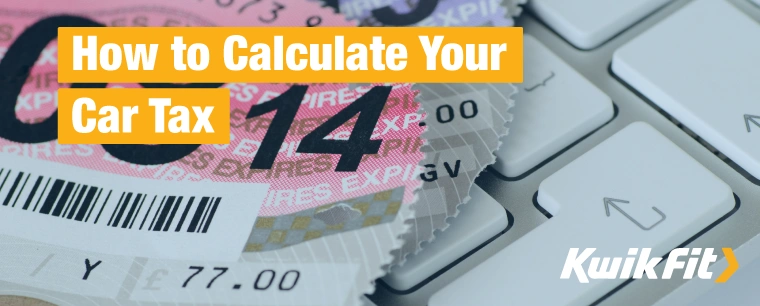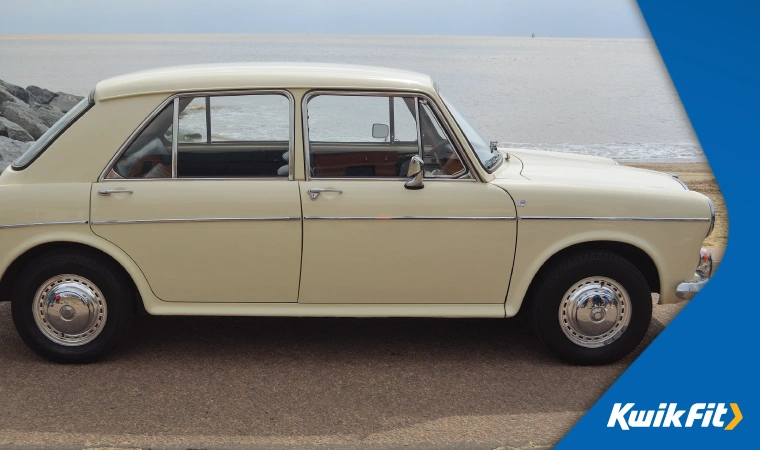How to Calculate Your Car Tax
Jack Dreyer | Thursday 10th November 2022 4:00pm

Everyone who owns and drives a car must pay car tax. This also applies to any vehicle kept on a public road that is not SORN (Statutory Off Road Notification).
Also known as Vehicle Excise Duty (or VED), car tax is paid into a central fund controlled by the government which can then be used to fund projects that benefit everyone who uses the road. These projects are usually road maintenance and things like resurfacing highways to get rid of dreaded potholes.
While everyone has to pay car tax, not everyone’s car tax is the same amount. There are a number of factors that influence how much car tax you have to pay, so read on to learn more about calculating car tax today.
Who is exempt from car tax?
While at the beginning of this blog, we mentioned that everyone who drives a car in the UK must pay road tax, this isn’t necessarily true. As with any financial law, there are a few exemptions. The following people will not need to tax their vehicles:
- Those who own brand new vehicles that produce 0 grams of CO2 emissions and cost less than £40,000.
- Those who own a vehicle registered between 1st March 2001 and 1st April 2017 that produces 100 grams of C02 (or less) per km driven.
- Those who own ‘historic vehicles’. That is, a vehicle older than 40 years old.
Some drivers with disabilities are also entitled to car tax exemptions if they:
- Drive a mobility scooter and not a car
- Receive War Pensioners’ Mobility Supplement
- Receive the Enhanced Mobility Component of PIP (Personal Independence Payment)
If you don’t need to tax your car, you will still need to let the DVLA know, renewing this note every year (even if the tax to pay is £0).
How much will your car tax be?
You will need to tax your vehicle every year. You can go about checking whether your vehicle is taxed (and for how much) here.
While the easiest way to know how much tax you’ll have to pay is by using the GOV.UK Car Tax Checker, we have explained the bandings in simple terms for you below too.
Road tax for new cars

If your car was registered after (or on) the 1st of April 2017, you will have to pay car tax. This tax amount is based on the CO2 emissions of the vehicle.
If your vehicle has emissions reading in the lowest bracket (1 to 50g/km), the tax will be low too. However, even within the emissions brackets, there are three tax differentiations too - these are based on the type of fuel you put in your car.
The emissions brackets formally used to distinguish the price of tax are:
- 0g/km
- 1 to 50g/km
- 51 to 75g/km
- 76 to 90g/km
- 91 to 100g/km
- 101 to 110g/km
- 111 to 130g/km
- 131 to 150g/km
- 151 to 170g/km
- 171 to 190g/km
- 191 to 225g/km
- 226 to 255g/km
- Over 255g/km
And the three categories of vehicle that can change the amount of tax you pay within each emissions bracket are:
- Diesel cars (TC49) that meet the RDE2 standard and petrol cars (TC48)
- All other diesel cars
- Alternative fuel cars (TC59)
The most expensive road tax is for category one with an emissions bracket of Over 255g/km. This costs £2,365 per year.
After the first year
After the first year, any car using fuel will pay a reduced rate of road tax. Cars using alternative fuels will pay £155 and petrol or diesel cars will pay £165.
If your car is above £40,000, you’ll be required to pay the above and an extra £355 for the next five years from the second time the vehicle is taxed.
Road tax for older cars

If your car was registered after March 2001 but before the 1st April 2017, you will have to pay a slightly different tax rate. The emissions brackets are different for older vehicles, this time looking like:
- Up to 100g/km
- 101-110g/km
- 111-120g/km
- 121-130g/km
- 131-140g/km
- 141-150g/km
- 151-165g/km
- 166-175g/km
- 176-185g/km
- 186-200g/km
- 201-225g/km
- 226-255g/km
- Over 255g/km
The tax is slightly cheaper for these vehicles, with the most expensive yearly tax figure being £630 for the Over 255g/km emissions bracket.
Lastly, if your vehicle was registered before 1st March 2001, the criteria that determine your VED bracket is purely based on the engine size. There are two simple categories
- Engines with a size under 1549 cc will cost £180 a year
- Engines with a size over 1549 cc will cost £295 a year
How to tax your car
Now that everything is done online, taxing your car is incredibly quick. All you need to do is head over to the VED page on the government website, where you are able to tax your vehicle from anywhere at any time of day simply by inputting a few details such as its make and model.
It can be difficult to remember when your tax is due (especially since tax discs disappeared long ago). However, some garages — our Kwik Fit centres included — offer an MOT reminder service which is generally a good indication of when your tax is annually due.
If it would be easier for you, there is now the option to pay your car tax in instalments. You can, for example, pay a small amount monthly or every 6 months. However, there is a 5% surcharge for this.
Cancelling road tax
You may of course want to cancel your road tax or get a refund for one of the following reasons:
- If you’re selling your car and transferring ownership
- If your car is written off in an accident
- If your car has been stolen or scrapped
- If your car is SORN
- If your car is now exempt (over 40 years old)
You can do that through the DVLA again by visiting this webpage.
Contact Kwik Fit today
We know there’s a lot to think about when it comes to keeping your car on the road. So, while you handle your vehicle tax, leave us in charge of the MOT, servicing, and tyre maintenance.
Contact your local Kwik Fit today to book a free safety check or any other of our services.
Any facts, figures and prices shown in our blog articles are correct at time of publication.
Featured Articles
Is it Illegal to Drive With One Headlight?
Saturday 19th July 2025
Wondering if it’s illegal to drive with one headlight? Learn about the safety risks and penalties of illegal blown bulbs and why you should fix them promptly.
Air Con in EVs & Hybrids: Experts Answer Your Questions
Monday 30th June 2025
Does air con drain EV batteries? Can you use the air con while charging an electric car? Find out the answers to these questions & more from Kwik Fit’s experts.
Why Is Your Car Making a Noise? Fixes & Tips
Friday 13th June 2025
When your car starts making unexpected noises, it can certainly be quite disconcerting; it may be nothing to worry about, but here’s what you need to know.









